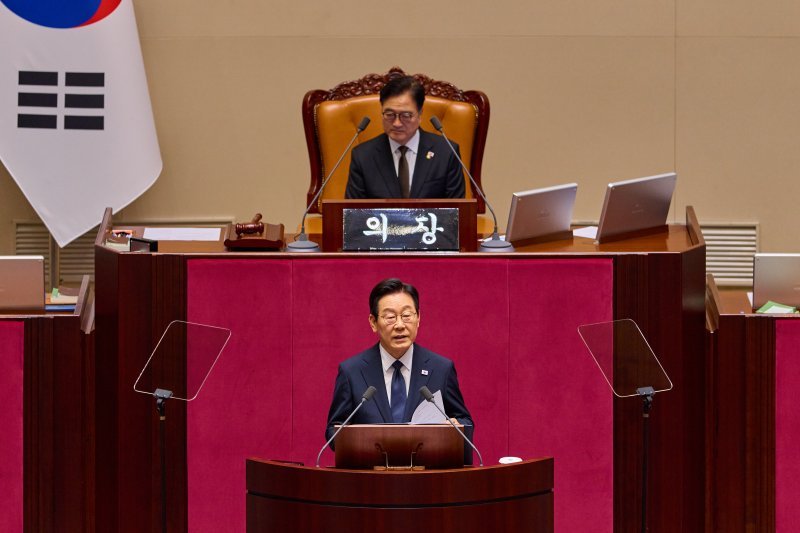[fn Editorial] Another ‘Half Policy Speech’: A Repeated Political Malpractice
- Input
- 2025-11-04 18:19:12
- Updated
- 2025-11-04 18:19:12

In his speech, President Lee also noted, 'AI technology is transforming the landscape of the defense industry,' identifying defense as a sector profoundly affected by technological innovation. He expressed his determination to shift from conventional weapons systems to advanced ones suitable for the AI era, thereby strengthening industrial competitiveness and achieving self-reliant national defense.
However, his remark that 'it is a matter of national pride that the Republic of Korea, with the world’s fifth-largest military, should not rely on external forces for defense' warrants reflection. While increasing the defense budget does help enhance military capabilities, it is worth reconsidering whether it was appropriate to directly link the unavoidable 'external reliance'—given North Korea’s advancing nuclear and missile capabilities—to national pride. National defense is a matter of survival, not pride.
At the end of his policy speech, President Lee stated, 'For the future of the Republic of Korea, the government will listen to the proposals of the National Assembly and accept good alternatives at any time.' He conveyed the message that, despite differences between the ruling and opposition parties, their sincere commitment to the nation and its people remains the same. This reflects the practical need for both sides to work together to address urgent issues and allocate the budget where it is most needed.
However, given the current confrontation between the ruling and opposition parties, cooperation still seems far off. On this day, the People Power Party boycotted President Lee’s policy speech in protest after a special prosecutor requested an arrest warrant for former floor leader Choo Kyung-ho. This marks the return of a 'half speech' for the first time in three years since the Yoon Suk Yeol administration in 2022, when the Democratic Party of Korea (DPK) staged a boycott and protest. Such a repetitive 'mirror-image politics,' with only the players switched, serves only to exhaust the public.
Next year’s budget proposal, amounting to a record 728 trillion won, was prepared amid external uncertainties caused by U.S.-China tensions and internal challenges of low growth and high interest rates. In such a complex crisis, if politics becomes increasingly polarized, even the best policies will struggle to be effective. The Korean Association of Public Finance (KAPF) has also analyzed that political polarization increases policy uncertainty and negatively affects economic growth.
Government spending is closely linked not only to corporate investment but also to household consumption. If the passage of the budget proposal is delayed, uncertainty will grow in corporate production and investment plans, gaps may emerge in the social safety net, and private consumption could shrink. Bipartisan cooperation is not merely a political virtue but an essential condition for overcoming crises and ensuring economic stability.
The ruling and opposition parties must end endless political strife and come together at the table of cooperation, recognizing their shared responsibility to resolve issues jointly. It is hoped that President Lee Jae Myung will demonstrate leadership that transcends partisan interests and open the door to genuine cooperation.